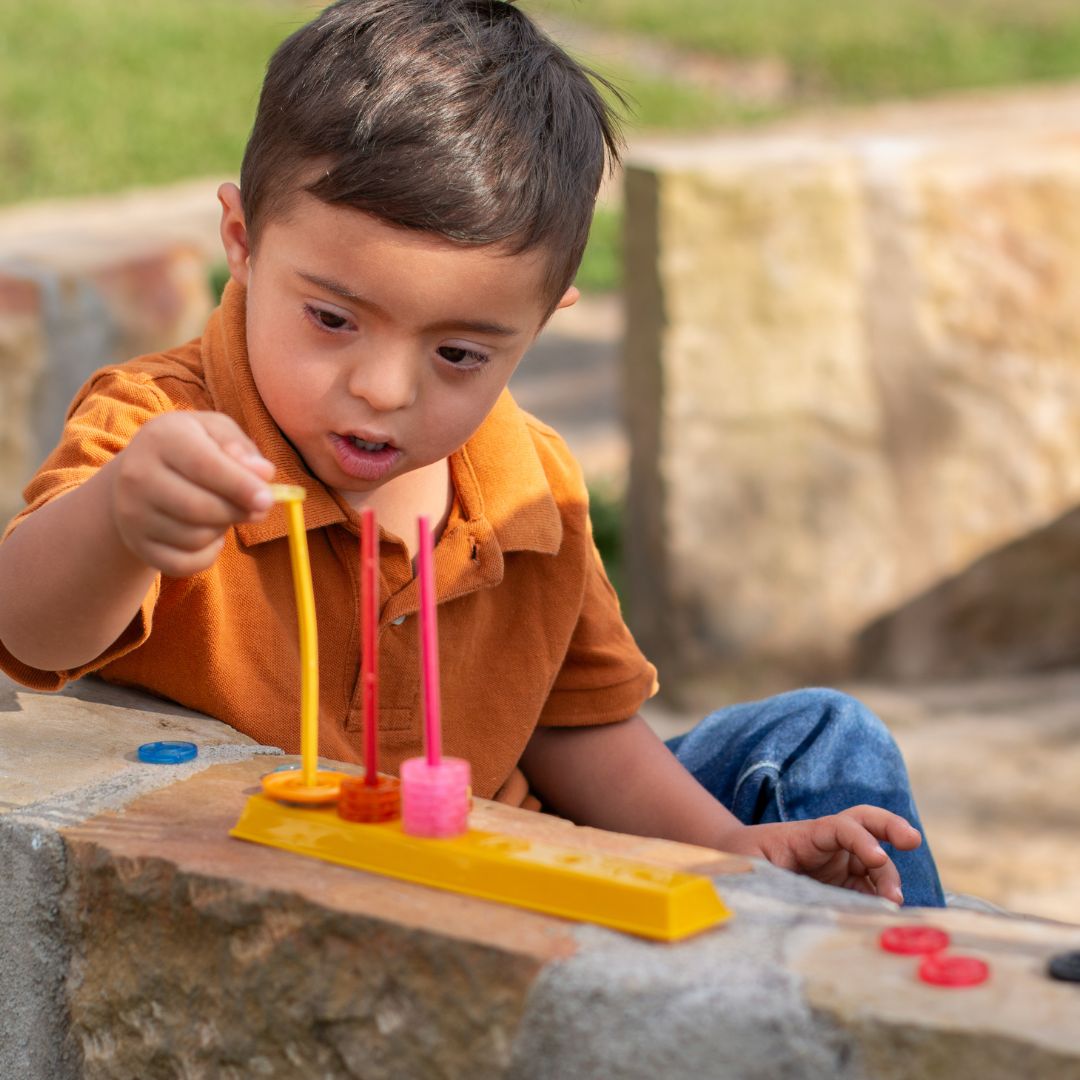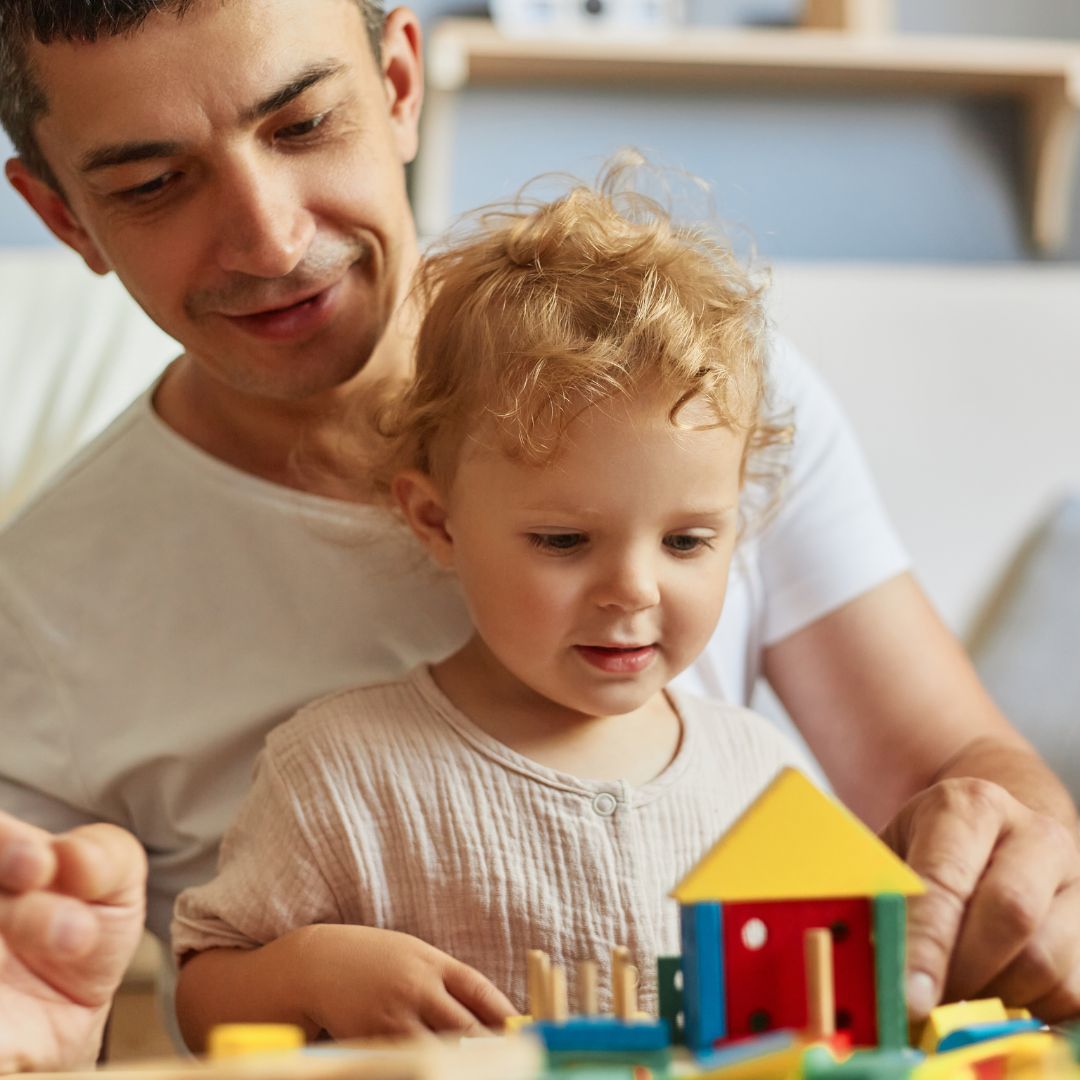Have you ever heard of cognitive playgrounds in early childhood education? Imagine taking the concept of a traditional playground, a place of fun and physical activity, and infusing it with elements designed to stimulate a child’s cognitive development—essentially, a space where children can boost their brains while having a blast!
The idea isn’t brand new; rather, it tapped into the broader understanding of child development emerging in the early 20th century, heavily influenced by educational theorists like Jean Piaget and Lev Vygotsky. They believed that children learn best through play, an idea that has since evolved into the dynamic, interactive spaces known as cognitive playgrounds.
As parents, we’re always looking for ways to support our children’s development—emotionally, physically, and, of course, cognitively. Cognitive playgrounds play a pivotal role in this quest, offering an environment that challenges young minds just as much as it delights them.
In this blog post, we’ll explore the question, “What is early childhood education?” and its fascinating history of cognitive playgrounds, understand their role in early childhood development, and lay out some key features that make a playground ‘cognitive’. Plus, we’ll share some tips on how you can bring the concept of a cognitive playground right into your own backyard. Whether you’re a long-time advocate of experiential learning or just curious about innovative approaches to child development, there’s something here for everyone.
Ready to jump in? Let’s play!
Importance of Early Childhood Education
Isn’t it incredible how much learning and growth happen in those first few years of life? From the babbling baby to the talkative toddler, the importance of early childhood education can’t be overstated as it’s a critical period for development that sets the foundation for a lifetime.
Cognitive Development
Cognitive development is all about how children think, explore, and figure things out. It involves the development of problem-solving skills, memory, and the ability to understand the world around them. Cognitive playgrounds are designed with this in mind, featuring puzzles, interactive games, and challenges that prompt children to use their minds in new ways. Research, including the groundbreaking work of Piaget and Vygotsky, shows that active, hands-on play is crucial in helping children build these important cognitive abilities.
Social Skills Enhancement
Playgrounds are natural gathering spots, which makes cognitive playgrounds an excellent venue for children to hone their social skills. Sharing, taking turns, and cooperating with others are all part of the playtime experience. This is especially true with a nanny share, where children from different families can interact and learn from each other. By engaging in imaginative play scenarios, using problem-solving skills to navigate group activities, and communicating with peers, an early childhood educator can help children develop essential social skills that will serve them well throughout their lives.
Emotional Growth
The challenges and successes that come with play in cognitive playgrounds also contribute significantly to emotional growth. Children learn to cope with frustrations, celebrate achievements, and build resilience and confidence. Emotional self-regulation, an important developmental milestone, is often practiced and mastered in the playful yet challenging environment of the playground. Engaging in play that stimulates emotional development has been linked to improved empathy, self-esteem, and a better ability to handle stress in later life.
Components of Early Childhood Education
Now that we’ve unpacked the what are cognitive playgrounds and their many benefits, it’s time to zero in on the nitty-gritty of early childhood education. What makes it tick?
Curriculum Design
Curriculum design in early childhood education is like crafting a treasure map for little explorers. It outlines the key learning objectives and milestones but does so in a way that’s flexible and responsive to the children’s interests and developmental stages. Researchers like Howard Gardner, with his theory of multiple intelligences, have revolutionized how we think about crafting curricula. Gardner’s theory suggests that children have different kinds of intelligences, from linguistic to logical-mathematical, spatial, and more. A well-designed curriculum, therefore, includes a broad range of activities to cater to these diverse learning styles, ensuring every child finds a path that resonates with them.
Play-Based Learning
Play-based learning is not just fun and games; it’s serious business in the space of child development. It’s an approach where play is the vehicle for learning, allowing children to explore, discover, and experiment in a structured yet flexible environment. This learning method is backed by a wealth of research. Studies show that children learn best in an environment where they feel safe and free to express their curiosity and creativity. For instance, a comparative study highlighted in the Educational Research for Policy and Practice journal found that children in play-based programs showed more advanced literacy and math skills than those in more traditional settings. The reason? Play-based learning harnesses the natural power of play to foster cognitive, physical, and social development.
Importance of Inclusive Education
Inclusive education is the cherry on top of a well-rounded early childhood education program. It’s about creating learning environments that welcome children of all abilities and backgrounds, offering them equal opportunities to learn and grow. This approach is integral, not just morally and ethically, but also educationally. A study concluded that inclusive education results in positive outcomes across social, emotional, and academic dimensions for all students, not just those with special needs. It teaches empathy, respect, and acceptance, laying the foundation for a more inclusive society.
Educational Resources

Now that we’ve uncovered the magic behind cognitive playgrounds, it’s time to explore the treasure trove of educational resources. These tools are not just add-ons; they’re essential elements that enrich the learning landscape, creating engaging, effective, and inclusive early childhood learning environments for our little explorers.
Learning Materials
When we talk about learning materials, we’re looking at the building blocks of knowledge. From colorful picture books that whisk children away on fantastical adventures to building blocks that teach the basics of physics and mathematics, these materials are the hands-on tools for learning. Research has consistently shown that tactile learning—or learning by doing—can significantly enhance brain development as they display better motor skills development and higher engagement levels. It’s clear that having a diverse array of learning materials not only caters to different learning styles but also fosters an environment ripe with opportunities for discovery and exploration.
Technological Integration
In the era of digital natives, the integration of technology in early childhood education opens up a world of infinite possibilities. Interactive apps, educational software, and digital storytelling platforms are not merely distractions but vital tools that engage young minds in a language they understand intuitively. Using educational apps showed significant improvement in literacy skills compared to those who didn’t. But here’s the kicker – it’s not about passive screen time. The key is interactive, thoughtfully designed content that promotes active engagement, turning what could be a passive viewing experience into an interactive learning adventure.
Outdoor Learning Spaces
Remember the thrill of a field trip day? That excitement underscores the value of outdoor learning activities and spaces in sparking curiosity and connecting with the natural world. These environments offer more than fresh air; they’re live settings for lessons in science, geography, ecology, and more. Studies have shown that an outdoor learning environment significantly improves children’s knowledge and attitudes about nature and environmental stewardship. In other words, when children learn in and about the outdoors, they’re more likely to grow into adults who respect and protect their environment.
If finding the time to facilitate outdoor learning activities proves challenging, a professional nanny can help bridge this gap, ensuring your child still reaps the benefits of engaging with nature. At Hello, Nanny!, we specialize in placing nannies who are not only excellent caregivers but also passionate about fostering educational growth, including the invaluable experience of outdoor learning.
Learn More About How We Can Help You Find The Nanny Your Child Deserves!
OrCam Learn Improves Reading and Learning Skills
After exploring the rich landscape of educational methodologies and tools, we’re now marching towards an innovative frontier that’s reshaping how young minds learn to read. Meet OrCam Learn, the cutting-edge companion in your child’s literary adventure. It’s not just another gadget; it’s a personal reading assistant, allowing you to introduce your little ones to the magical world of words.
Listen to Any Text
Imagine a world where every piece of text, from the back of a cereal box to the epic tales of Harry Potter, can speak directly to your child. OrCam Learn offers just that – a chance for kids to hear any text read aloud in a clear and engaging voice. This isn’t just about reading; it’s about listening, understanding, and imagining. The impact? Research highlights that listening to text can enhance comprehension skills and foster a deeper connection to the material, making those bedtime stories not only a moment of bonding but a springboard for intellectual curiosity.
Improve Reading Skills
Navigating through the complex web of phonics, vocabulary, and grammar is no small feat for a young reader. OrCam Learn comes to the rescue with interactive features that bolster reading skills at every level. This smart tool adapts to your child’s pace, highlighting words as they’re read and offering definitions for new vocabulary on the fly.
View Your Child’s Reading Improvement
One of the most heartwarming parts of this adventure is watching your child’s progress unfold right before your eyes. OrCam Learn doesn’t just support your child; it provides you with detailed insights into their reading improvement. From tracking the number of words read per minute to identifying challenging vocabulary, this technology offers a comprehensive look at your child’s reading journey. According to research, monitoring progress in this way not only motivates young readers but also enables parents and early childhood educators to tailor support precisely where it’s needed.
Ready To Embark On Your Child’s Reading Journey?
Learn More About How OrCam Learn Can Supercharge Your Child’s Reading Skills Today!
Measuring Success in Early Childhood Education
After exploring the fascinating world of educational methodologies and innovative tools like OrCam Learn, it’s natural to ponder, “But how do we measure success in early childhood education?” It’s a question that stirs much debate and curiosity among educators and parents alike. Measuring success isn’t just about tallying up scores; it’s about understanding the impact of these methods on a child’s development and long-term success.
Assessment Metrics
When it comes to assessing the effectiveness of early childhood education, it’s not as straightforward as you might think. Traditional metrics like test scores and grades only scratch the surface. The real gold lies in observational assessments and qualitative feedback. Watching how a child interacts with learning materials, peers, and instructors offers invaluable insights into their social, emotional, and cognitive development. Furthermore, tools like portfolios, where children’s work is collected over time, provide a richer, more nuanced view of their progress.
Long-Term Impact Studies
But what about the long game? The impact of early childhood education stretches far beyond preschool years, shaping individuals’ trajectories into adulthood. Long-term impact studies give us a window into the future, revealing how early learning experiences correlate with outcomes like academic achievement, social skills, and even economic success. One landmark study, the Perry Preschool Project, followed participants until they were 40 years old. The findings? Those who attended high-quality early childhood education programs had higher earnings, were more likely to hold a job, and were less likely to have committed crimes compared to their counterparts who didn’t attend preschool. This study, among others, underscores the profound, lasting impact of early childhood education on life outcomes.
Summary
In the kaleidoscope of early learning, every color, every shape, and every texture plays a pivotal role in the masterpiece that is a child’s development. From the verdant greens of outdoor learning to the vivid pixels of devices like OrCam Learn, we’re sketching a future where education is not just about filling a bucket but igniting a fire. The stories of progress, from whispered tales at bedtime to proud moments watching a child confidently tackle new words, are the true measures of success. And, as we wrap up, remember that the journey of education is a lifelong adventure, one that shapes not just the minds but the hearts of our littlest learners.
Interested in enhancing your child’s cognitive development further? Discover how working with a professional nanny can make a significant difference in their learning and growth.
Learn More About How We Can Help You Find The Nanny Your Child Deserves!

